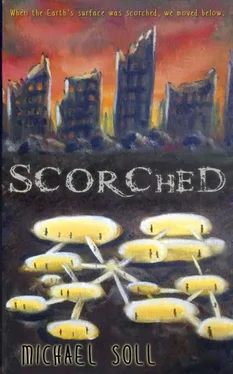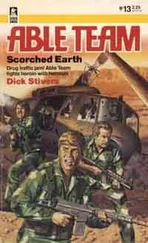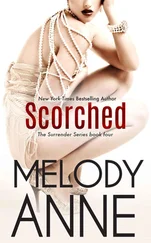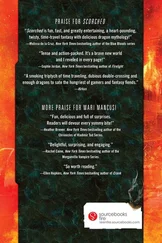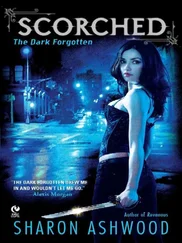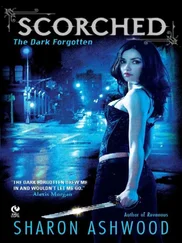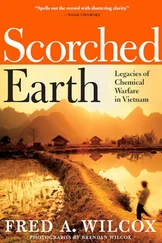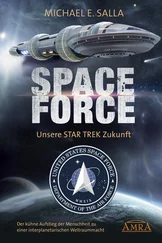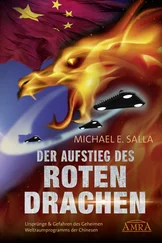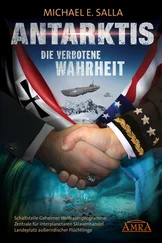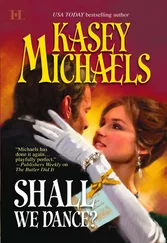The golden nugget shimmers in the dim light, a shining echo of bloodlust and triumph. It lay helplessly, entombed within stubborn soil, held hostage by indifference.
Beside the invaluable nugget, rusted iron strikes rock, shattering the prison and unleashing the beauty onto the dirt surface below. The nugget rolls down the uneven path and collides with a foot so filthy it’s difficult to tell where the dirt ends and flesh begins.
The boy ignores the gold; he’s looking for something else. Something more valuable to his village. Something more important than precious material forged billions of years ago deep within exploding stars.
No. The boy is looking for something that will help sustain the lives of the seventy-three people he calls his family. The boy is looking for the most essential natural resource to modern society.
The boy is looking for clay .
“This is the way the world ends
Not with a bang, but a whimper.”
— T.S. Elliot
I only know what they tell me.
In 2031, hundreds of “years” before I was ever born, a massive solar flare released by our sun struck the Earth and incinerated the atmosphere. Every living creature on the surface was scorched and only the few who were lucky enough to be underground at the time survived.
Most of the survivors starved within the first six months while the rest continued to dig deeper and deeper in search of new forms of sustenance. Those savvy enough to explore the possibilities of life under Earth discovered a world of oxygen-creating anaerobic bacteria that could be grown and cultivated fairly easily. Underground streams unaffected by the scorched surface dripped through cracks and crevices and into clay pots. Some insects and fungi survived alongside the human race, and with them, we discovered a world beneath the land we once called home.
And it is and has always been my home. It is the only life I know so I cannot compare it to any other. It is neither good nor bad, it just is.
My life is, what I assume to be, fairly normal to what life once was before we moved below. I have one father and one mother. My father has one son, my mother has 22 sons and daughters. She is one of three current breeders sturdy enough to survive the rigorous effects of childbirth. My mother has birthed 15 children since I was conceived, so I am currently in my 16 thcycle.
Like all my peers, I live alone with my father in a cubby he hand-carved. I am told our cubby was once twice the size in our old colony, but after the earthquake of 14 cycles ago and the death of a third of our population, we were forced to rebuild alongside our former home, constructing a sturdier colony reinforced with clay.
I am a collector. My job is to dig until I find resources that can be used back in the colony: rocks we can shape, insects and fungi for food, and most importantly, clay. With clay, we build the tanks for our anaerobic bacteria which allow us to breathe. We use the clay to help heat up invaluable waste products, purifying and using the precipitation as clean drinking water. But no doubt, none of this is new information to you.
I don’t mind collecting, especially since my partner is my best friend, Cotta. In our colony, you can only leave the main hive with a partner in case of injury or collapse. Cotta and I share the same mother, him being born the cycle after me. His father died in the great collapse when he was just a cycle old, so he was raised by an infertile elder named, Dover. Dover is weak and brittle, as most elders are, and risks a broken bone with a wrong step.
When I’m not collecting, I’m in the cubby with my father. Last week, we started drawing on our walls with some charcoal like the other families. My father likes to draw pictures of my mother while I like to create images of things that could never exist. I imagine insects several feet high covered in hair with sharp teeth. I imagine they can run at incredible speeds and burrow to depths unseen by Man. I imagine the world above, creating pictures based on what elders have passed down generation after generation. A sun so bright you could only gaze at it for a second before it burned your eyes. A sky so blue, like Cotta’s eyes, plastered above, just out of reach. And a nighttime, a period when the sun vanishes and billions of faraway suns twinkle.
I sometimes wonder how I’d be different if the sun had not destroyed the surface. I wonder how living above, albeit my daily tasks would differ, but how my mind would think. Would I ever consider what life beneath the Earth would be like? Would I still dream of large insects or would I be focused on other matters? What other matters are there to focus on besides survival and the ifs? If there’s one thing I have, it’s time. And with that abundance of time, I think. I think while collecting. I think while drawing. I think while sleeping.
I wonder about other survivors and if they wonder about me. Is there another me somewhere on the other side of the world contemplating if there’s another him?
And then, I try to stop. Thinking doesn’t do me any good; it doesn’t do anybody any good. My father tells me he’s grateful for my imagination, for the way I’ve rearranged our cubby and helped decorate and design our home. He tells me to never stop imagining, but the more I dream, the less free I feel. The dirt all around protects us from the danger above but it also encases and insulates our dreams; it is the barrier between here and anywhere but here.
That is why during the celebration of the next newborn’s birth, Cotta and I will leave through a hole we’ve been digging all cycle which leads back to our old colony. From there, we will journey farther than any before us, in search for a dream contained only by our imaginations instead of the walls we have constructed to isolate ourselves from the outside. As they say, the surface is the limit.
CHAPTER TWO
an Ordinary Day:
I awoke to find Cotta hovering over me. “You sleep like you’re dead.” I pushed him aside and grabbed my pickax. I had built the ax myself, using clay as the handle and shaping sturdy rock for the top. I finished off the ax by tipping it with the very little iron we had.
“Hey Spec, you wanna swap picks for today?”
I looked over at Cotta’s dull equipment and simply gave him a look.
“C’mon, you might like it. It’s sturdy and worn in.”
I stood up and grabbed my clay lantern. “I told you I’d help you make a new one.”
He stared at his ax with pride. “I love it. I just wanted to let you use it so you could enjoy it too.”
I checked my fuel level. “I need to fill up before we leave.”
“Why don’t you ever remember to fill it up at night?”
I grabbed a bowl and poured some chum in for later. (In case you call it something else, chum is our staple food, a concoction of fungi and insect larvae mashed up into crunchy flakes — it’s high in protein and easy to make)
We left my cubby and headed down the winding path toward the Central Tank to fill up. It’s the hub of our little colony and the place where we deposit our solid wastes. Thanks to Maggot, one of our colony’s Founding Fathers and a bio-engineer, we were able to convert our waste into usable methane gas. The gas is harnessed and used to light the Central Flame at all times. Every day, collectors can visit the tank and siphon some of the methane into their lanterns when they go on their excavation.
As I gathered some fuel, I noticed a pair of dark brown eyes peeking out, staring at Cotta and me. I knew instantly who it was; it wasn’t the first time she had followed me.
Читать дальше
